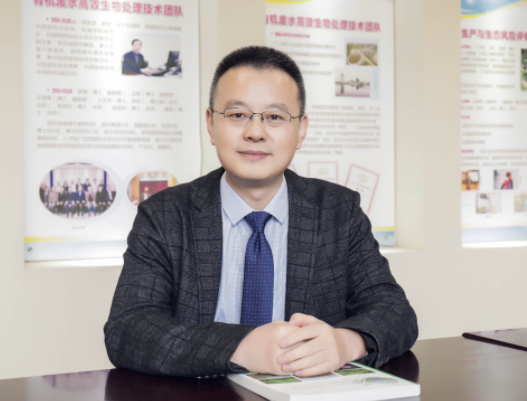
Ecological Environmental Protection and Sustainable Development课程:前往报名学习
Protecting ecological environment and constructing ecological homestead-ecological environment is the basis of human survival and development. Only by protecting ecological environment and promoting sustainable development can we realize the sustainable development of human society.
开设学校:陕西科技大学;学科:农林园艺、
Protecting ecological environment and constructing ecological homestead-ecological environment is the basis of human survival and development. Only by protecting ecological environment and promoting sustainable development can we realize the sustainable development of human society.
-1.1 The history of ecological civilization and sustainable development
--1.1.1 The history of ecological civilization and sustainable development
--1.1.2 Test
-1.2 Challenges and pressures for ecological civilization construction and sustainable development
--1.2.1 Challenges and pressures for ecological civilization construction and sustainable development
--1.2.2 Test
-1.3 The strategy and actions of China's ecological civilization
--1.3 The strategy and actions of China's ecological civilization
--1.3.2 Test
-1.4 discuss
--discuss
-2.1 Sustainable development
--2.1.1 Sustainable development
--2.1.2 test
-2.2 Circular economy and cleaner production
--2.2.1 Circular economy and cleaner production
-2.3 Natural resource utilization and protection
--2.3.1 Natural resource utilization and protection
--2.3.2 test
-2.4 Environmental incidence in China
--2.4.1 Environmental incidence in China
--2.4.2 test
-2.5 Ecological damage and ecological compensation
--2.5.1 Ecological damage and ecological compensation
--2.5.2 test
-2.6 discuss
--discuss
-3.1 Typical cases of pollution prevention and control
--3.1.1 Typical cases of pollution prevention and control
--3.1.2 test
-3.2 Typical case of circular economy
--3.2.1 Typical case of circular economy
--3.2.2 test
-3.3 Impact of green credit on industrial structure
--3.3.1 Impact of green credit on industrial structure
--3.3.2 test
-3.4 Market-based for managing the environmental risks
--3.4.1 Market-based for managing the environmental risks
--3.4.2 test
-3.5 discuss
--discuss
-4.1 Water pollution & control
--4.1.1 Water pollution & control
--4.1.2 test
-4.2 Air pollution & control
--4.2.1 Air pollution & control
--4.2.2 test
-4.3 Solid waste manegement and disposal
--4.3 .1 Solid waste manegement and disposal
--4.3.2 test
-4.4 Physical pollution & control
--4.4.1 Physical pollution & control
--4.4.2 test
-4.5 discuss
--discuss
-5.1 Environmental management
--5.1.1 Environmental management
--5.1.2 test
-5.2 Environmental legislation in China
--5.2.1 Environmental legislation in China
--5.2.2 test
-5.3 Environmental impact assessment
--5.3.1 Environmental impact assessment
--5.3.2 test
-5.4 discuss
--discuss
-6.1 Beautiful contryside construction in China
--6.1.1 Beautiful contryside construction in China
--6.1.2 test
-6.2 Circular economy in the aquaculture industry
--6.2.1 Circular economy in the aquaculture industry
--6.2.2 test
-6.3 Returning cropland to forest and sustainable development of forestry
--6.3.1 Returning cropland to forest and sustainable development of forestry
--6.3.2 test
-6.4 Biodiversity conservation in China
--6.4.1 Biodiversity conservation in China
--6.4.2 test
-6.5 Sustainbale development of the yellow river basin
--6.5.1 Sustainbale development of the yellow river basin
--6.5.2 test
-6.6 Ecological civilization construction of Qinling Mountains
--6.6 .1 Ecological civilization construction of Qinling Mountains
--6.6.2 test
-6.7 Meeting the challenge of green trade barriers
--6.7 .1 Meeting the challenge of green trade barriers
--6.7.2 test
-6.8 Cross-border environmental disputes from the perspective of globalization
--6.8.1 Cross-border environmental disputes from the perspective of globalization
--6.8.2 test
-6.9 discuss
--discuss
郭军康,男,博士、教授、博士生导师,课程负责人。现为陕西科技大学环境科学与工程学院副院长、土壤污染修复与尾矿资源化研究团队负责人、陕西省秦岭生态环境保护青年学者。 从教以来,先后承担本科生《环境生态工程》、《土壤污染修复工程》、《环境科学与工程导论》与研究生《环境科学与工程前沿》等课程的教学工作。 主要研究方向为重金属污染土壤修复与尾矿资源化。近十年来主持国家自然科学基金3项,主持或参加国家重点研发计划、国家自然科学基金、农业部重金属污染治理专项、农业部“948”等项目20项。发表中文核心期刊论文26篇,SCI论文30余篇。授权国家发明专利6项;获天津市科学技术进步二等奖1次。指导本科生获国家级与省级“大学生创新创业训练计划(国家级)项目”3项,全国互联网+大赛省赛银奖和铜奖2项。现任陕西省生态学会常务理事;陕西省等多个省级科技奖励评审专家;中国轻工业联合会科学技术奖励评审专家;中国农学会农业环境损害鉴定评估分会委员;中国环境科学学会会员。
魏婷,女,博士,讲师,硕士生导师。2015年毕业于加拿大英属哥伦比亚大学,获理学博士学位。先后承担本科生《环境生态学》、《生物化学》、《环境科学与工程专业英语》与研究生《环境生物学》等课程的教学工作。 研究方向为土壤重金属污染修复,近五年来主持国家自然科学基金、陕西省自然科学基金、陕西省教育厅专项科研计划项目等多项项目,发表SCI论文10余篇,申请发明专利2项。
朱超,讲师,环境科学与工程专业,研究方向为环境微生物学及环境毒理学,工业污染的生物控制及资源化技术,主持省部级相关科研项目3项、横向项目6项,参与国家级科研项目3项;主持省级等教改项目4项;发表科研教学论文30余篇,其中SCI收录10余篇,申请国家发明专利8项并授权1项,授权国家实用新型专利1项并转化。获得校级教学成果二等奖两项,获陕西科技大学课堂教学质量奖两次,指导学生参加“全国环境友好科技竞赛”获国家二等奖1项、“互联网+”大学生创新创业大赛省级金奖和铜奖各一项、“挑战杯”创新创业大赛省级铜奖一项。
王羽琴,陕西榆林人,博士,副教授,硕士生导师。2017年7月毕业于中国科学院大学,获得工学博士学位。2016年9月-2017年8月在美国圣路易斯大学地球与大气科学学院进行联合培养。2017年9月起在陕西科技大学环境科学与工程学院环境工程系任职。主要从事大气颗粒物空间来源与环境健康效应方面研究。
Muhammad Haris,男,博士。2010年9月-2017年9月,就读于巴基斯坦费萨拉巴德农业大学,获学士学位和硕士学位。2017年9月-2020年7月,就读于陕西科技大学环境科学与工程学院,获工学博士学位。目前为陕西科技大学环境科学与工程学院博士后,研究领域包括土壤修复、土壤化学、土壤生物学、环境健康效应等,发表SCI论文3篇。

